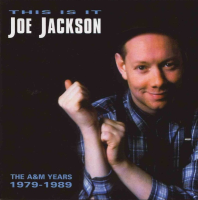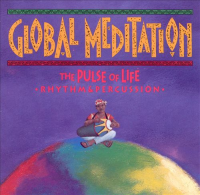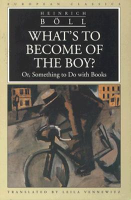-
Improvement
-
Resolution: Unresolved
-
 Normal
Normal
-
None
-
None
-
None
The style guidelines for titles account for one type of compound title. I think editors would benefit from additional guidelines for:
- titles with more than one subtitle
- titles with date ranges
- titles with second titles
My comments below are specific to English grammar, but they might also apply to other languages. I welcome feedback.
Titles with more than one subtitle
How would you punctuate the following title?
Global Meditation | Volume 3 | The Pulse of Life | Rhythm & Percussion
If you're not sure, you're not alone. The sources I checked each render this title differently:
- Global Meditation, Vol. 3: Pulse of Life (AllMusic)
- Global Meditation, Vol. 3: Percussion - The Pulse Of Life (Amazon.com)
- Global Meditation: The Pulse Of Life, Rhythm & Percussion (Discogs)
- Global Meditation - The Pulse Of Life - Rhythm & Percussion (Musik-Sammler.de)
(The MusicBrainz editor who added this release copied Amazon's style: Global Meditation, Vol. 3: Percussion - The Pulse Of Life)
The MusicBrainz style guide advises editors to "use a colon to separate any subtitles." But should editors also do this when there is more than one subtitle? Here's how that looks:
Global Meditation, Volume 3: The Pulse of Life: Rhythm & Percussion
Even though this is grammatical, it's uncommon to see this style in English titles, and it can seem weird. Another way (that is also conventional and grammatical) is to use an em dash in place of the second colon, as in this real-world example from the academic journal Progress in Human Geography.
The em dash is bounded on both sides by a single space, like this:
Global Meditation, Volume 3: The Pulse of Life — Rhythm & Percussion
In this particular case, the second subtitle, "Rhythm & Percussion", interprets and paraphrases what came before using literal language. In such cases, it might also be acceptable to use parentheses:
Global Meditation, Volume 3: The Pulse of Life (Rhythm & Percussion)
Parentheses are an option when the secondary subtitle is mutable, expository, or not necessarily to be considered part of the title proper.
What punctuation we choose depends on the relationship between the elements of the compound title. The colon is not just a divider. We use it in titles becomes it elaborates or explains what came before, just as it does in a sentence.
A corner case
Here's a corner case that further demonstrates why we should pay attention to the relationships when punctuating.
How would you punctuate this book title?
Home Is Elsewhere | Heinz Stücke | 50 Years Around the World by Bike
Here's the book cover.
The publisher punctuates the title like this:
Home Is Elsewhere. Heinz Stücke: 50 Years Around the World by Bike
We don't often see the full stop in English titles, but this is a special case and I defend the publisher's usage. (Remember that we use exclamation points and question marks instead of colons in other titles.) Home Is Elsewhere is a complete sentence. Replacing the full stop with a colon doesn't work well here because the element Heinz Stücke does not elaborate, elucidate, or explain the element Home Is Elsewhere. However, a colon is appropriate after Heinz Stücke, because Heinz Stücke is the subject of the element 50 Years Around the World by Bike. This relationship is comparable to that in a title like Pizza: A Global History.
Date ranges in titles
Treatment of date ranges in release titles on MusicBrainz is inconsistent.
Some editors treat a date range as a subtitle...
- The Classic Rhythm + Blues Collection: 1955-1959
- Studio Album Collection: 1978-1987
- This Is It: The A&M Years - 1979-1989
... whereas others omit punctuation:
- The Ice Axe Cometh: The Collection 1978-86
- The Secret Museum of Mankind, Volume 1: Ethnic Music Classics 1925-48
- The Singles Collection: The Bronze Years 1978-1984
But what punctuation? In almost all cases, a preceding comma is the safest thing to use. Below, I examine a few different contexts to explain why.
Appositive date ranges
This Is It: The A&M Years - 1979-1989
The Singles Collection: The Bronze Years 1978-1984
Both of the examples above should be punctuated with commas before the date ranges because the date ranges are appositives of the noun phrases "The A&M Years" and "The Bronze Years", respectively.
Correct:
This Is It: The A&M Years, 1979-1989
The Singles Collection: The Bronze Years, 1978-1984
1979-1989 is synonymous with "The A&M Years" because those are all of the years that Joe Jackson was with A&M Records. Because they are synonymous, they are in apposition, and the appositive comma applies.
What if the title was This Is It: A&M Years 1982-1985? The correct thing would be to omit the comma. Without the definite article, "A&M Years" becomes a modifier for the date range, and not a synonym of it. Since we are just talking about some of the A&M years, and not all of them, the two elements are not synonymous, and therefore they are not in apposition.
Other titles that end in a date range
Many MusicBrainz titles treat date ranges as subtitles:
The Classic Rhythm + Blues Collection: 1955-1959
Studio Album Collection: 1978-1987
I don't know what stance authoritative sources take on this style, but I dislike it because a date range isn't really a subtitle. Also, would you also do the following?
The Ice Axe Cometh: The Collection: 1978-86
If not, then the comma is the preferable choice. This is the style that the Library of Congress uses. Because it's a more versatile option, it's perhaps more attractive as a general recommendation.
- The Ice Axe Cometh: The Collection, 1978-86
- *The Classic Rhythm + Blues Collection, 1955-1959
- Studio Album Collection, 1978-1987
Explanations and examples:
- Commas with Appositives
- Appositives (section "Punctuation of appositives")
- Style and Presentation—Subtitles (examples occurs in section "Series name as subtitle")
Titles with second titles
A second title is an alternative title, but it is not a subtitle. It may be linked to the main title by a conjunction.
For example, the full title of Herman Melville's novel Moby-Dick is Moby-Dick; or, The Whale. This style is normative. The convention is to suffix the main title with a semicolon followed by or and a comma. If the main title ends with an exclamation point or question mark, one omits the semicolon:
What's to Become of the Boy? or, Something to Do with Books is a novel by Heinrich Böll.
Since second titles are more common to novels than to music albums, guidelines about them would most likely apply to audiobooks or to prose works.
Examples:



